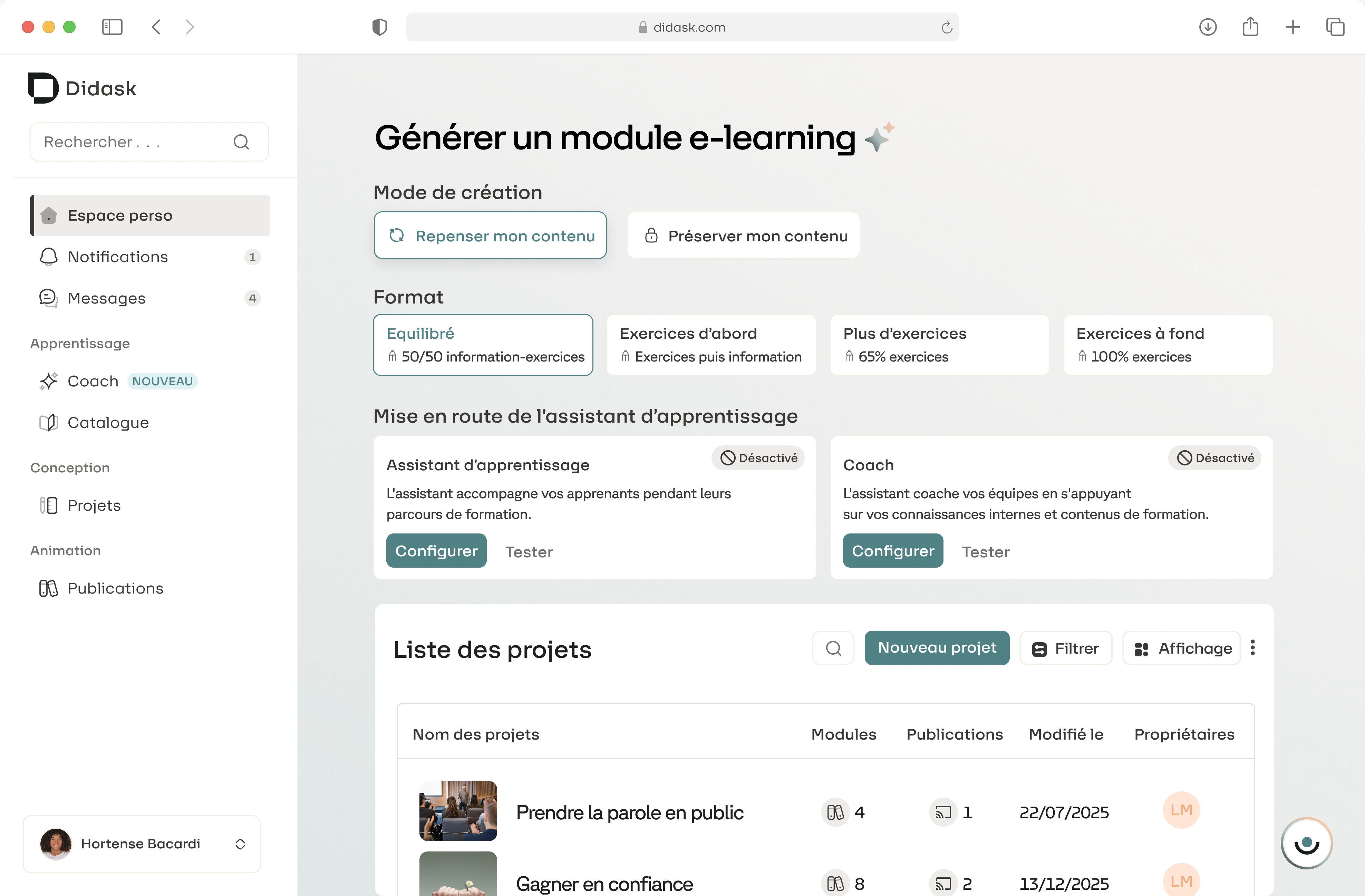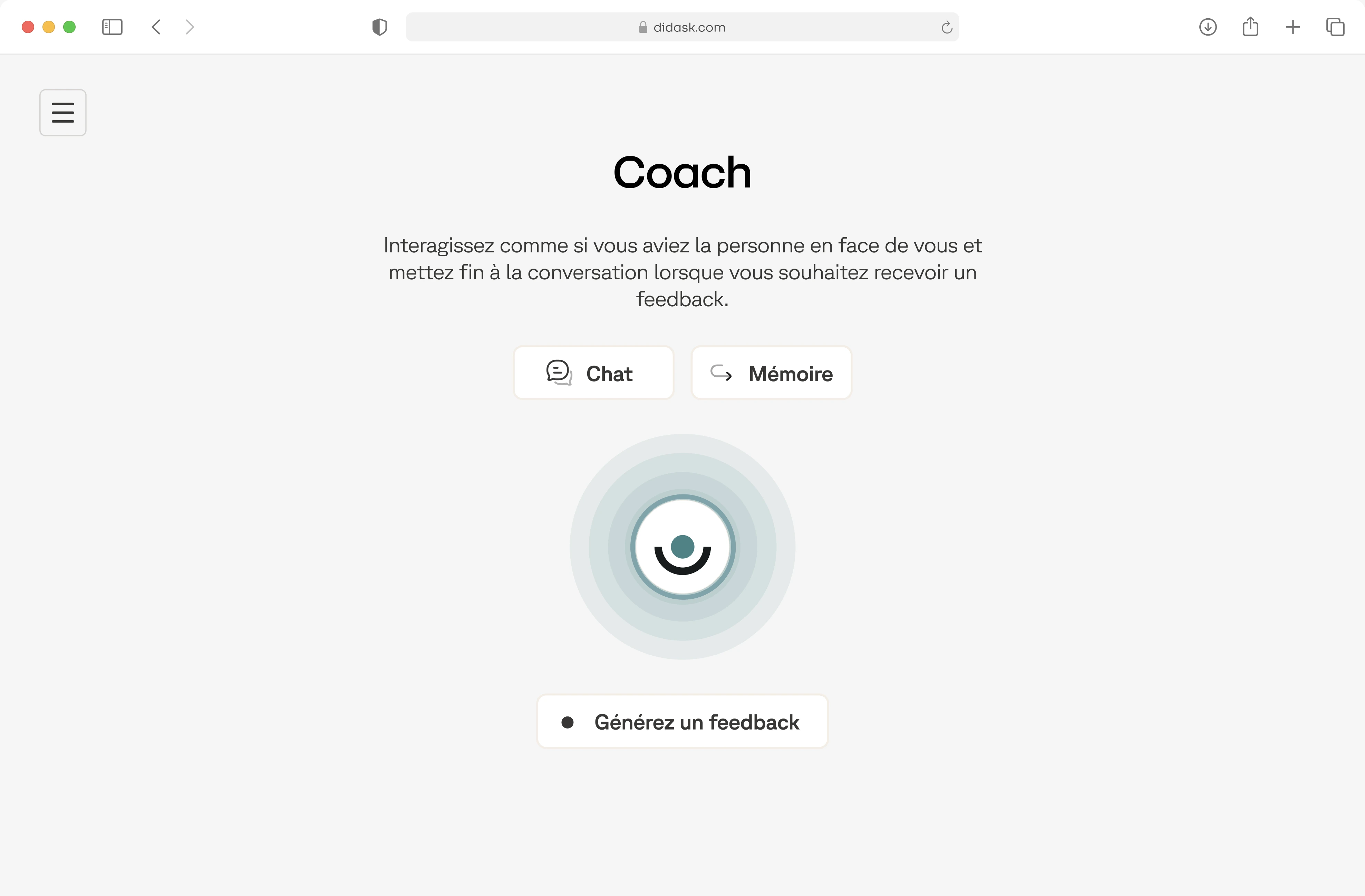When it comes to equipping yourself with an LMS (learning management system), the imperatives around writing massive specifications can generate hasty reflexes: race for functionality, catalog filling...
However, these reflexes often come from presuppositions that, although they may have been true a few years ago, are no longer relevant in the current context, marked by rapid technological advances and major changes in the market offer. This paradigm shift requires reevaluating all of our preconceived ideas: what can we expect from a modern LMS?
Prejudice n. 1 - The LMS is used to manage training courses, not to increase skills
Nobody really believes in e-learning
The e-learning market presents a paradox: everything happens as if the buyer does not believe in the usefulness of the product he is buying. Or rather, as if he believed that his usefulness was quite different from what he was sold to.
In practice, The LMS is considered to be a management software at best (the “Management” of “learning management system”), to manage training and save costs. Training in itself and its capacity to deliver a sustainable increase in skills (“Learning”) seem an ancillary subject in comparison.
Businesses are well aware that the ability of a team to progress on a daily basis is one of the keys to productivity; simply, their mental model of an e-learning course is a succession of theoretical slides rather boring, followed by two or three obvious questions; The proposed format does not seem to them up to the challenge. The result is an implicit belief that e-learning is a vast masquerade, from which not much should be expected in terms of substance.
Raising your skills online is possible, people are already doing it
However, in terms of digital education, we are no longer in the era of timid experiments. Today, online training is a trivial matter. Millions of people are developing complex self-taught skills on the Internet.. From retraining employees taking up coding, to craft aficionados who become experts using YouTube tutorials, the evidence of the potential of online training is clear.
Have learners who successfully learn on screen discovered a secret that is beyond the reach of ordinary people? Not at all. They simply deploy effective learning strategies that, if generalized, could make today's newbies the experts of tomorrow.
On the other hand, face-to-face training, although often necessary, is not a panacea. Do you think that sitting on a chair for seven hours watching slides scroll is enough to permanently transform your employees?
The relevance of formats, the only differentiating factor
Whether it's face-to-face or digital, Ultimately, everything depends on the relevance of the teaching formats and their adaptation to the needs of the learner. : put into practice, Feedback...
Some LMSs (most of them, in truth) focus on the administrative side, leaving the pedagogy to the experts in the field; others bet on putting learning at the heart of their value proposition. It's Didask's bias, An LMS solution designed by cognitive science researchers to ensure the sustainable progress of learners.
We think he is possible to be more demanding of the LMS. This one should not not be a simple place of storage and management but a reliable instrument of Increase in competence for your teams.
Prejudice 2 - E-learning is only used to deal with basic theory
The employee and the autodidact: two online courses, two opposing results
Let's go back to our theoretical slides, for example on compliance, which is dear to e-learning, and compare them to the experience of the autodidact who successfully learns to code or knit on the Internet. In terms of motivation, The following employee anti-corruption e-learning is more or less constrained ; by contrast, The autodidact wants to create a video game or to knit a sweater for your friend; his motivation is then said to be intrinsic, rather than extrinsic (To go further on the subject of motivation, see our article Motivation, concentration, attention: 3 essential levers for successful learning)
Because he wants to go quickly, the employee goes through all the slides without reading them in depth; the autodidact stops at each line, or takes a break every five seconds on the video, and asks himself questions to check that he understood correctly. The compliance module simply lists concepts (“declaring conflicts of interest”); the code forum or the Youtuber video shows concretely how to carry out the operation: this is what we call a “resolved case”.
The employee does his training once and returns to his daily life; the autodidact comes back to the subject several times a week. Above all, The employee never has the opportunity to experience concretely what he·she saw, while The autodidact puts many times into practice, with increasingly complex projects. He gets feedback, either directly (the code runs; the sweater is the right size), or from peers, for example by joining a community.
Note that these two individuals (or perhaps they are the same individual) exclusively used digital technology to train; only, one of them comes out with a superficial mastery of notions related to corruption and conflicts of interest at best, while the other can produce a sock for you.
A well-designed e-learning course goes all the way to putting it into practice
However, No law forces e-learning to offer a zero level of learning ; no European directive prescribes a quota of practical scenarios or feedback. We can easily imagine online courses that motivate learners by adapting to their initial needs; allow them to regularly practice on credible concrete cases; push them to remind them and recover their memory via flashcards; and go so far as to provide them with a virtual coach who guides them on real tasks, with personalized feedback based on their performance. For that, On the one hand, the educational formats available on the LMS must be suitable for this ; on the other hand, reduce the barrier to entry, because the creation of educational activities with higher added value than the transmission of basic information requires time and rare skills.
This is what a solution like Didask offers, which automates a set of effective teaching formats, and allows business experts to convert their raw content into relevant training thanks to to an AI teaching assistant. The effectiveness of the result is linked to the efficiency of production to put sustainable skills development within everyone's reach.

Prejudice #3 - The LMS does not capture informal learning on a daily basis
The 70/20/10 myth
A myth persists, widely relayed on social networks: the 70/20/10 theory. According to this theory, 70% of apprenticeships would take place informally on the workstation, 20% in the interaction with colleagues, and 100% only in trainingn.
Rather, the reality is as follows: 5% of training, 15% of inconsistent advice poorly digested, and 80% of problems. Improvised “on-the-job” learning is a waste of resources considerable, and cognitive science explains why: the contradictory signals are too numerous to draw clear lessons from our experience. Immersed too quickly in complex tasks, learners face a cognitive overload that prevents them from processing information. Without pedagogical support, without clear feedback, daily experience can just as easily lead to stagnation or even regression as to the rise in competence.
The conditions for successful informal learning
However, informal learning at the workplace is possible, provided it is at least structured : the knowledge must be easily accessible, the information must be presented in a clear, gradual and contextualized manner (just in time), the instructions must be accompanied by examples and solved cases, and Learners should receive feedback on their work as they complete tasks, rather than weeks or months later.
Improving daily productivity, a new field for the LMS
Until recently, the LMS left this field empty because it was not “training” in the classical sense of the word. This is no longer the case anymore: Powered by AI, today's LMS can be connected directly to your work tool (for example, business conversational interfaces) and offer your learners personalized interactions when they need it. Imagine a salesperson who generates a tailor-made simulation to prepare for his customer appointment, then debriefs his performance with the virtual coach... This is what Didask offers, among others, with now a coach trained on your documentation, embedded in your tools, and designed to improve daily productivity.
The LMS is changing with the times: it is time to see these tools in a new light and to recognize their potential for deep learning. Advances in e-learning, with the help of AI, are opening up possibilities that were impossible until recently for improving individual skills. Solutions like Didask show how to combine management and impactful learning: what are you waiting for to try?










.png)